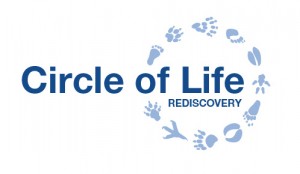National Number Day
Next Friday is the NSPCC’s National Number Day. I hope this inspires you to join thousands of schools for a mega maths-inspired fundraising day and raise money for the NSPCC. Below are just a couple of examples of how to take maths outside!
Leaf Multiplication
Thank goodness for leaves! How would we learn our multiplication tables without them.
“Hmm.” I hear you say. “I managed just fine, thank you very much.”
Maybe so, but let’s face it. There’s a lot of rote learning to be done. We need to find different ways of helping children learn their tables and have fun whilst doing so.
The added bonus of using leaves is that you can appreciate the beauty of the structure and learn which one is which in the process.
It’s compound leaves that seem to work best. These are ones like a horse chestnut leaf. These have lovely “hand-shaped” leaves each with 5 leaflets. So 1 leaf has 5 leaflets, 2 leaves have 10 leaflets, 3 leaves have 15 leaflets, etc.
You often find the leaves of buttercups are arranged in trios.
If these leaves look a bit odd, it’s because I placed them face down to stop them blowing away! 4 x 3 (trios) = 12.
Ash leaves are more variable. However I managed to acquire a nice collection of leaves with 9 leaflets. 3 x 9=27.
For the very able mathematicians in your class, perhaps they would like to create multiplication sums for bracken fronds…
I think there’s lots of possibilities here. Can your class find compound leaves to represent all the multiplication tables from 2 to 10? Can they each create a sum, then have a competition to see who can solve all the sums the quickest? What challenges spring to your mind?
Stick Logic
One ongoing challenge for teachers is ensuring that children who finish earlier than others have something meaningful to move onto. There’s lots of possibilities outside and this stick activity is one such example. It can be completed in pairs or by children working alone. It helps if children know they can look at the work that others are doing.
The children need to find 9 sticks of about the same length. Conveniently I have a big stash of cut sticks.
If you do not have such luxury items, then challenge children to find or create 9 sticks of equal length. Twigs are fine too.
The challenge is pretty simple: how many triangles is it possible to make using 9 sticks? I have no idea, but the photos give you an indication of how I went about the task!
This logic activity can also be ongoing over several days. I like coming up with variations on a theme and asking children to do the same.
For example, what differences would we discover if:
- We used 9 sticks of different lengths.
- We used less than 9 sticks or more than 9 sticks – Is there a pattern to what we discover?
- We chose a different shape to create, e.g. a square.
All-in-all it can be quite an absorbing task. I’m not sure this is the maximum number possible. If you better 18, I’d love to know how!
I hope this equips and inspires you to take maths outside on National Number Day!
By Juliet Robertson
Get real, get messy, get maths, get outside!
Come and spend a wonderful day in the woods, with Juliet Robertson, the author of the multi-award winning book, ‘Messy Maths‘. Together you will explore the five “R’s” of Messy Maths:
- Rights – every child is mathematical and has the right to have learn about and explore maths.
- Routines – embedding key maths concepts into your daily routines.
- Resources – open-ended, low cost materials which can be used in lots of different ways with different ages and abilities of children.
- Responsibilities of the adults – how to follow children’s lead and articulate the learning which happens through a play-based approach. It also includes ways of involving families in developing a child’s love of maths.
- Re-imagining your outdoor space – developing maths-rich provision in any outdoor space be this a concrete jungle, woodland paradise or something else.
This content is based upon the book, Messy Maths: A Playful and Outdoor Approach for the Early Years. It is particularly suitable for those who work with children aged 3-6 yrs old. It takes a sensible approach that provides lots of practical ways to ensure your maths provision is engaging and interesting outside and meets the needs of the children with whom you work.
This all takes place within the context of sustainability using the environment, natural materials and what is around us in any outdoor space.
Lead Facilitator: Juliet Robertson
Location: Mill Woods, near Laughton, East Sussex, BN8 6BP
Cost: £120. If you are attending the Literacy Day also, the fee is £220 for the two days.*
Time: 09.00 – 15.30
About Juliet
Juliet is one of Scotland’s leading education consultants who specialises in outdoor learning and play. She works at a national level delivering training, giving keynote speeches, leading and supporting innovative outdoor projects and writing content for websites, documents and case studies. She is passionate about enabling schools, play organisations and early years settings to provide quality outdoor learning and play opportunities for children and young people. Read more here.
Transforming education, health and family through nature.
 We provide exciting and highly beneficial nature-centred learning and therapeutic experiences for young people, adults, and families in Sussex woodlands, along with innovative continuing professional development for the health, well being and teaching professionals who are supporting them.
We provide exciting and highly beneficial nature-centred learning and therapeutic experiences for young people, adults, and families in Sussex woodlands, along with innovative continuing professional development for the health, well being and teaching professionals who are supporting them.







